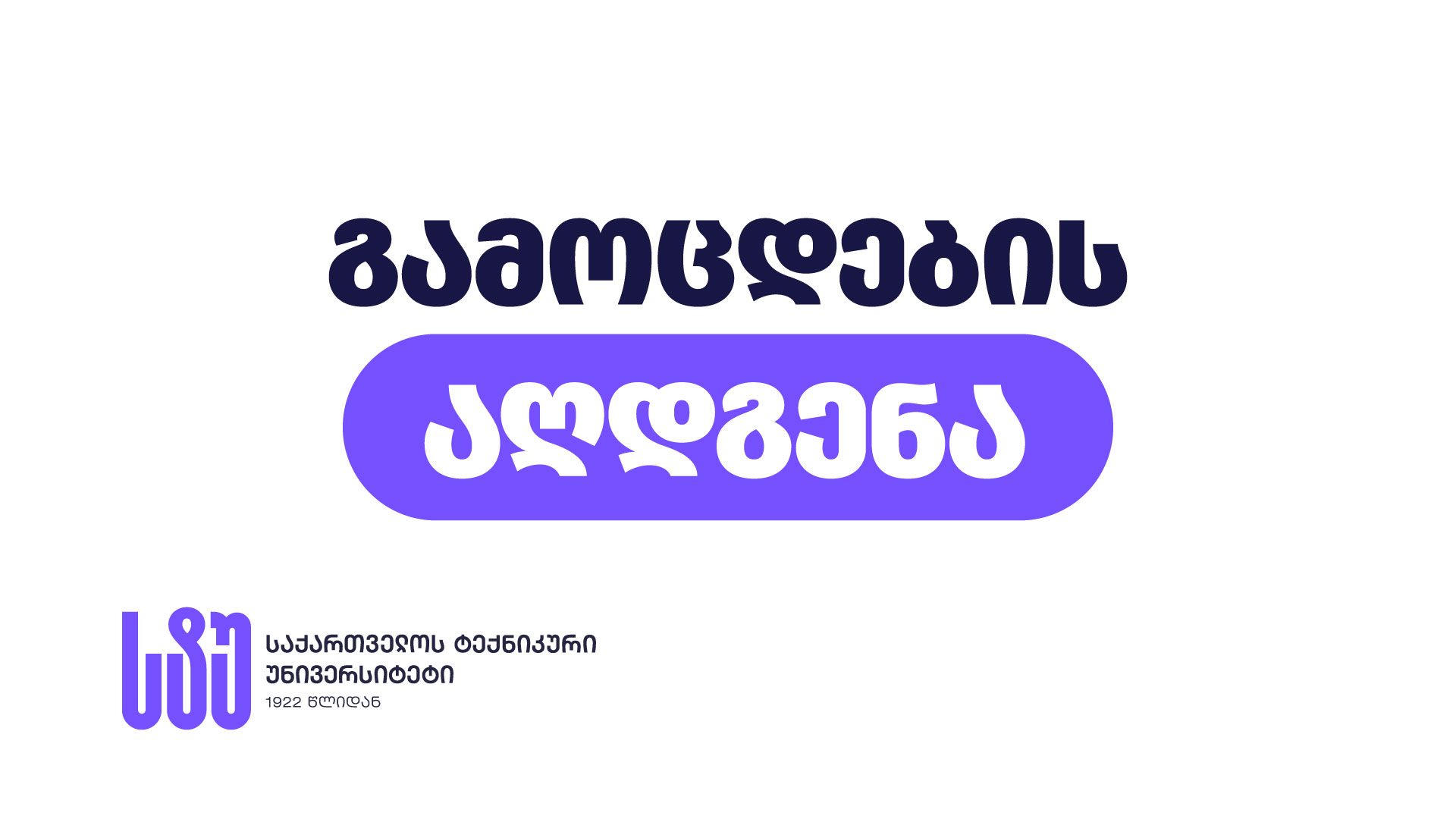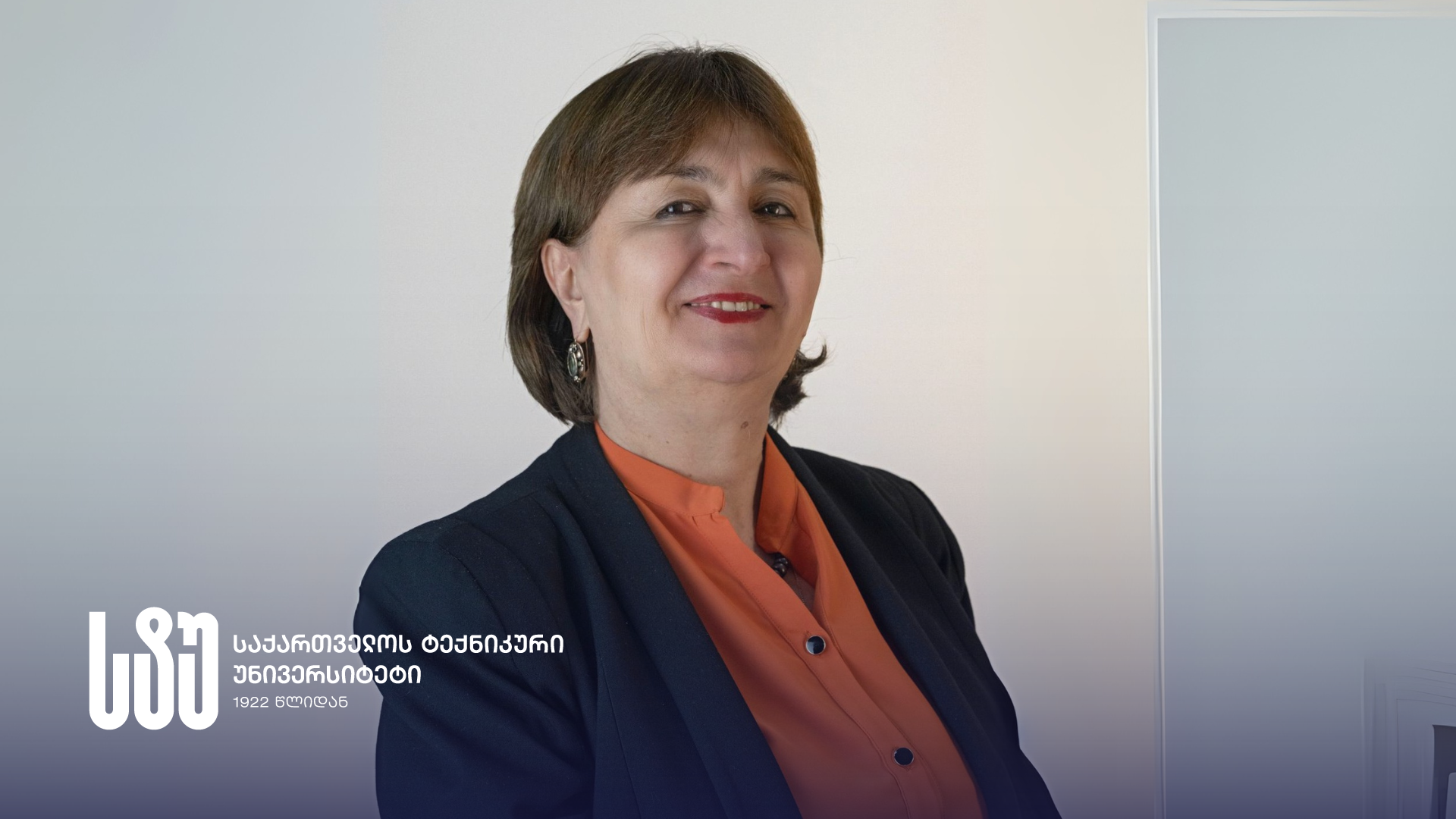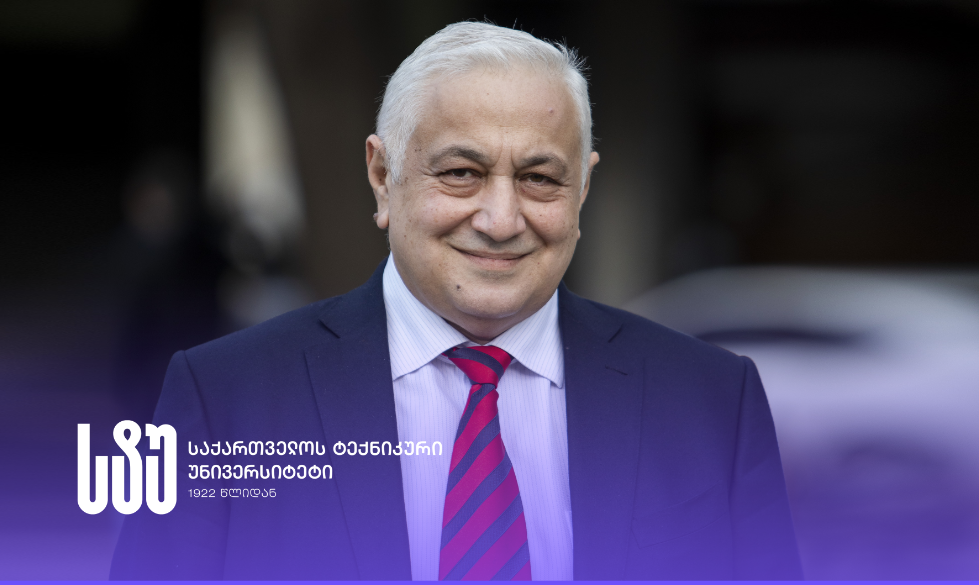The GAIN Summer School Was Opened at the Muskhelishvili Institute of Computational Mathematics
12-08-2024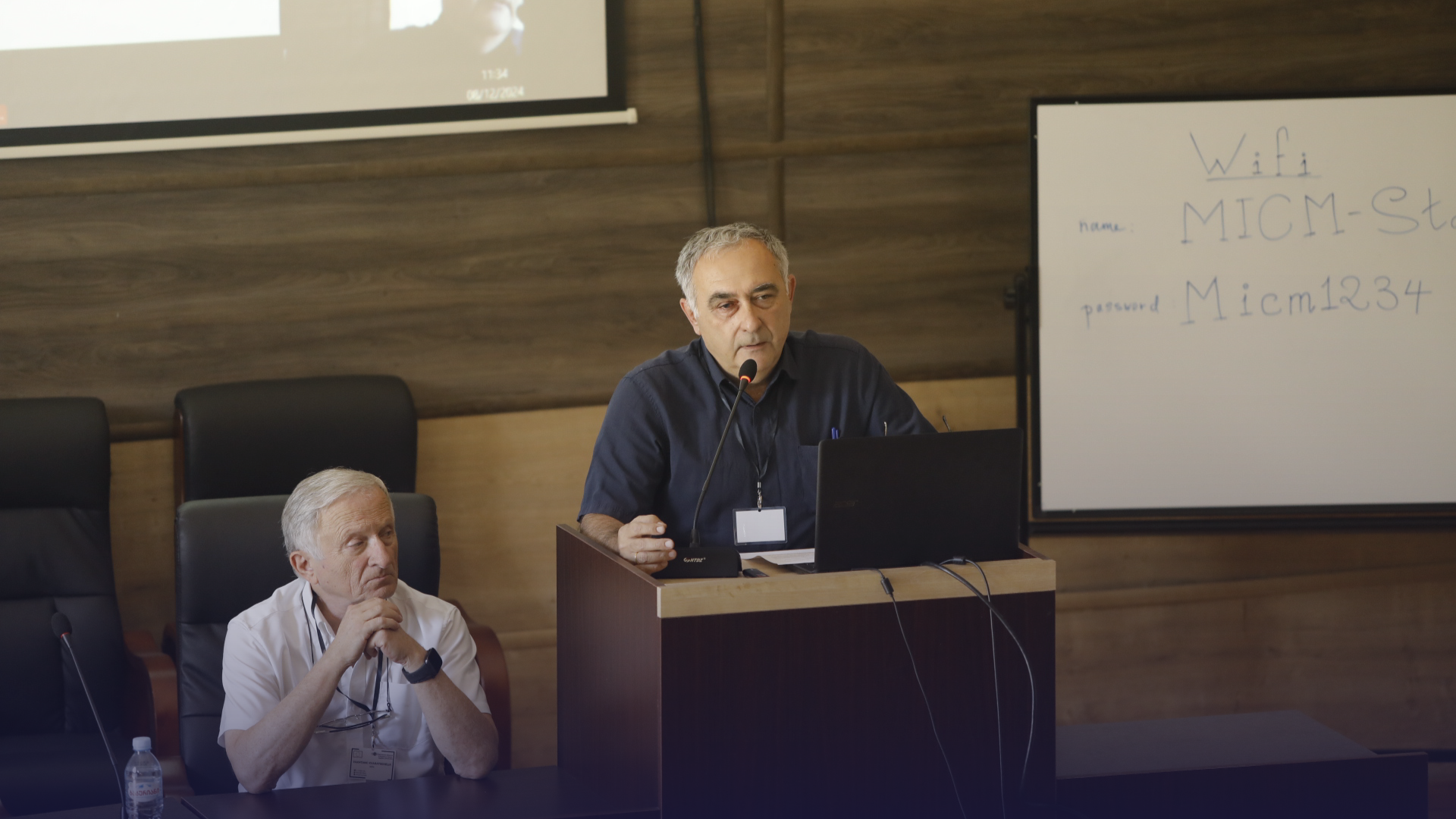
The opening ceremony of the summer school “Modeling Human Cognition and Emotion Using Artificial Intelligence” was held at the Institute of Computational Mathematics named after Niko Muskhelishvili of the Georgian Technical University.
The opening ceremony of the summer school was attended by researchers from partner scientific organizations: Professor François Bremont - National Research Institute for Digital Science and Technology (INRIA, France), Philippe Müller and Benedict Wirth - German Institute of Artificial Intelligence Research Center (DFKI); (DFKI, Germany), Minha Lee - Eindhoven University of Technology (Netherlands), as well as scientific staff and students of Niko Muskhelishvili Institute of Computational Mathematics.
According to Giorgi Giorgobiani, Deputy Director of the Niko Muskhelishvili Institute of Computational Mathematics of the Georgian Technical University, Chief Scientist, and Coordinator of GAIN, the project ensures the integration of Georgia into the system of European efforts and, in turn, aims to improve achievements at one of the most transformative technologies - artificial intelligence (AI).
“The summer school we are organizing is held for the first time. However, in 2023, on September 4-8, we participated in the first Summer School of Project GAIN, held at INRIA, Sophia Antipolis. The event was part of the INRIA-DFKI 3rd European Summer School on Artificial Intelligence (IDESSAI 2023). 10 young researchers and project coordinators represented MICM. September 5th was dedicated to the Georgian partners’ presentations.
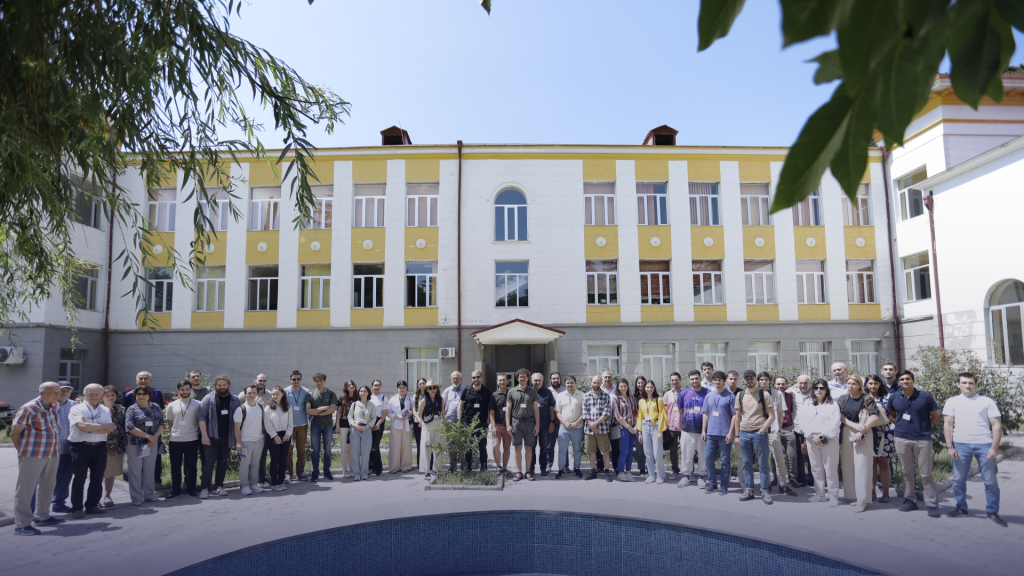
The summer school is implemented under the auspices of the European Union program “Horizon Europe” in research and innovation within the framework of the prestigious international grant project GAIN won by the institute in 2023.
It should be noted that the summer school aroused great interest among Georgian students. Students of Georgian Technical University, Ivane Javakhishvili Tbilisi State University, Ilia State University, and Black Sea International University expressed their desire to attend the lectures. Professors and specialists are also invited to the event. 19 of the 26 participants of the summer school are students. Within the framework of the project, three students of the Georgian Technical University, under the guidance of Georgian and foreign scientists, will conduct research for their Doctoral thesis in Germany and France for three months”, informed Giorgi Giorgobiani.
According to Professor Vakhtang Kvaratskhelia, director of the Institute of Computational Mathematics named after Niko Muskhelishvili of the Georgian Technical University, under the coordination of the institute, within the framework of the “Horizon Europe” project – “Georgian Artificial Intelligence Networking and Twinning Initiative”, in parallel with various events, the Institute of Computational Mathematics implements a summer school project.
“Our partners are the unconditional leaders of European research - the German DFKI and the French INRIA, as well as the high-tech company EXOLAUNCH (Germany). Within the framework of the project, it is planned to take strategic steps to integrate Georgia into the European system, which aims to be the leader in Europe’s present and future artificial intelligence technologies. To achieve the set goal, some research profiles of the Institute of Computational Mathematics named after Niko Muskhelishvili will be brought into line with the profile of artificial intelligence and its connection with the European research and innovation community. At the same time, our students and scientists conduct research in cooperation with German and French scientists,” said Vakhtang Kvaratskhelia.
The summer school – “Modeling human cognition and emotion using artificial intelligence” - will last three days. Foreign scientists will present their reports to the students: François Bremont with the topic – “Computer vision for action recognition”, Philip Muller – “AI-based multimodal interaction analysis”, Benedict Wirth – “Face recognition in humans and DCNNs” and Minha Li – “Exploring the Moral Implications of Shared Mind Perception”.
The opening ceremony of the summer school was attended by researchers from partner scientific organizations: Professor François Bremont - National Research Institute for Digital Science and Technology (INRIA, France), Philippe Müller and Benedict Wirth - German Institute of Artificial Intelligence Research Center (DFKI); (DFKI, Germany), Minha Lee - Eindhoven University of Technology (Netherlands), as well as scientific staff and students of Niko Muskhelishvili Institute of Computational Mathematics.
According to Giorgi Giorgobiani, Deputy Director of the Niko Muskhelishvili Institute of Computational Mathematics of the Georgian Technical University, Chief Scientist, and Coordinator of GAIN, the project ensures the integration of Georgia into the system of European efforts and, in turn, aims to improve achievements at one of the most transformative technologies - artificial intelligence (AI).
“The summer school we are organizing is held for the first time. However, in 2023, on September 4-8, we participated in the first Summer School of Project GAIN, held at INRIA, Sophia Antipolis. The event was part of the INRIA-DFKI 3rd European Summer School on Artificial Intelligence (IDESSAI 2023). 10 young researchers and project coordinators represented MICM. September 5th was dedicated to the Georgian partners’ presentations.

The summer school is implemented under the auspices of the European Union program “Horizon Europe” in research and innovation within the framework of the prestigious international grant project GAIN won by the institute in 2023.
It should be noted that the summer school aroused great interest among Georgian students. Students of Georgian Technical University, Ivane Javakhishvili Tbilisi State University, Ilia State University, and Black Sea International University expressed their desire to attend the lectures. Professors and specialists are also invited to the event. 19 of the 26 participants of the summer school are students. Within the framework of the project, three students of the Georgian Technical University, under the guidance of Georgian and foreign scientists, will conduct research for their Doctoral thesis in Germany and France for three months”, informed Giorgi Giorgobiani.
According to Professor Vakhtang Kvaratskhelia, director of the Institute of Computational Mathematics named after Niko Muskhelishvili of the Georgian Technical University, under the coordination of the institute, within the framework of the “Horizon Europe” project – “Georgian Artificial Intelligence Networking and Twinning Initiative”, in parallel with various events, the Institute of Computational Mathematics implements a summer school project.
“Our partners are the unconditional leaders of European research - the German DFKI and the French INRIA, as well as the high-tech company EXOLAUNCH (Germany). Within the framework of the project, it is planned to take strategic steps to integrate Georgia into the European system, which aims to be the leader in Europe’s present and future artificial intelligence technologies. To achieve the set goal, some research profiles of the Institute of Computational Mathematics named after Niko Muskhelishvili will be brought into line with the profile of artificial intelligence and its connection with the European research and innovation community. At the same time, our students and scientists conduct research in cooperation with German and French scientists,” said Vakhtang Kvaratskhelia.
The summer school – “Modeling human cognition and emotion using artificial intelligence” - will last three days. Foreign scientists will present their reports to the students: François Bremont with the topic – “Computer vision for action recognition”, Philip Muller – “AI-based multimodal interaction analysis”, Benedict Wirth – “Face recognition in humans and DCNNs” and Minha Li – “Exploring the Moral Implications of Shared Mind Perception”.
